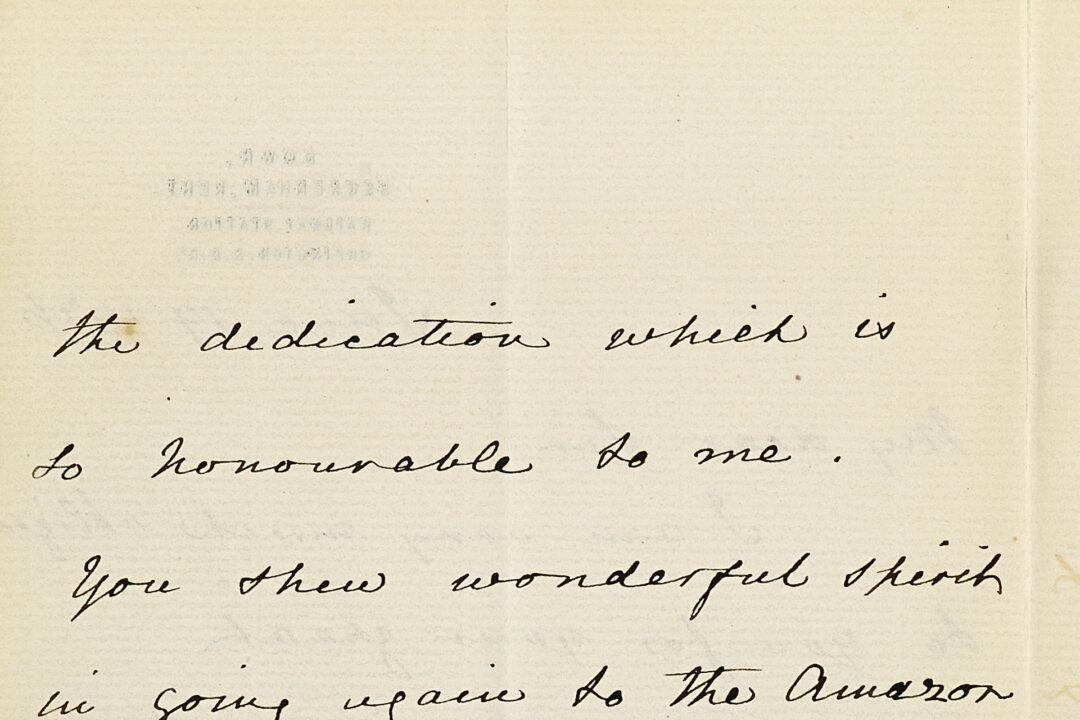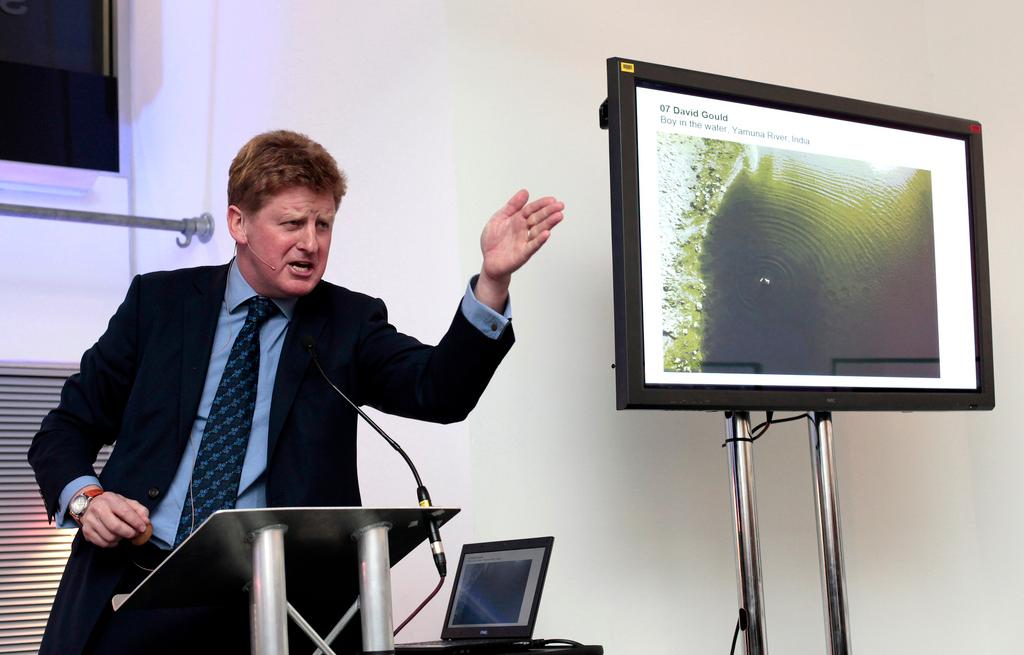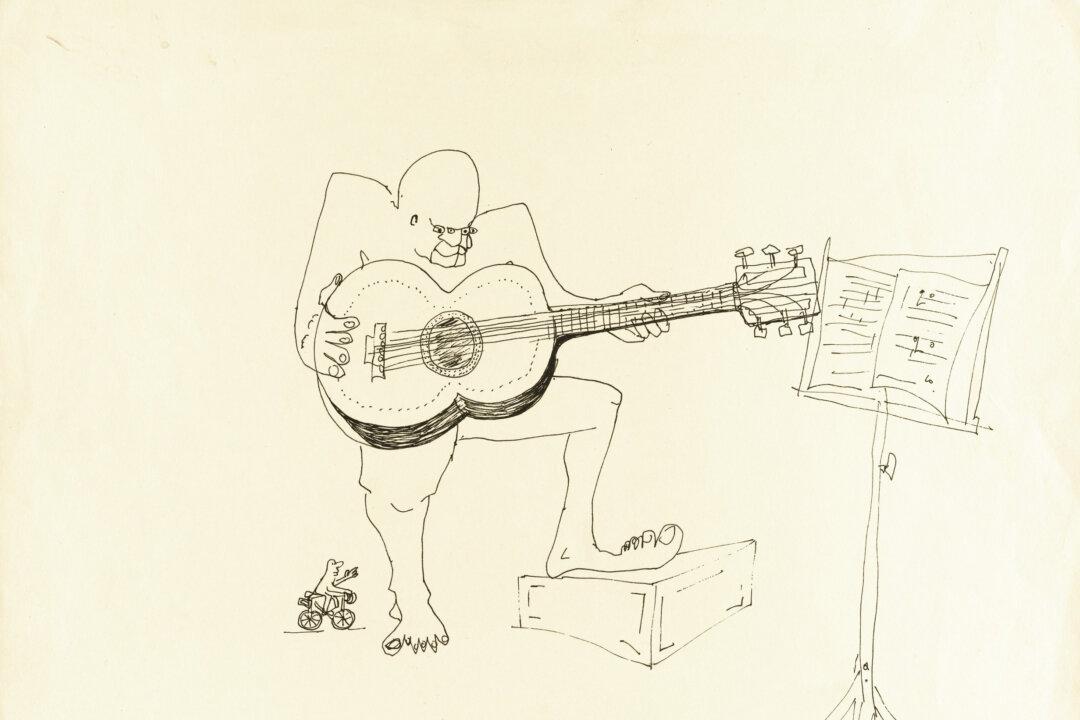NEW YORK—A letter by Charles Darwin on the sex life of barnacles and a still-working vintage Apple computer — one of only 50 made in Steve Jobs’ garage in 1976 — are among the unique pieces of science history up for auction this month.
Buyers at the Oct. 22 event at Bonhams will need deep pockets. The Steve Wozniak-designed Apple 1 computer is estimated to bring $300,000 to $500,000. One sold at auction last year for $671,000.
For something really exotic, potential buyers can fork over an estimated $150,000 to $250,000 for a Manhattan Project viewing window that shielded scientists on the secret World War II bomb project from radiation. The clear yellow glass, measuring approximately 3 feet by 4 feet and weighing 1,500 pounds, contains 70 percent lead oxide.
“It’s the first time a full window from the Manhattan Project has come on the market,” said Cassandra Hatton, Bonhams’ specialist on the history of science.
The auction also has a wide range of globes and other technological instruments. They include the earliest electric keyboard, a rare 1905 Helmholtz sound synthesizer with a pre-sale estimate of $20,000 to $30,000.
Hatton says this is Bonhams’ first sale in New York of artifacts of science and technology, which has become a growing area of interest among tech-savvy buyers.
“I think increasingly things — the stuff of our world — is attracting collectors who consider and value the historical and cultural context of artifacts as much as their material value,” added Sarah Lichtman, director of The New School’s master’s degree program in the history of decorative arts and design.
Darwin’s 1857 letter to a colleague about barnacles is “classic Darwin” and “definitely amusing,” said David Kohn, director and general editor of the Darwin Manuscripts Project at the American Museum of Natural History. “It’s Darwin’s passion for the meaning of sex,” Kohn said.
In the letter, estimated to bring $20,000 to $30,000, Darwin says he wants to learn more about the sex act of barnacles, such things as “were the specimens under water at times” and “if the recipient was in full vigor?”
The letter’s historical significance, Kohn said, “is that Darwin’s still pursuing this evolutionary theme of reproduction. ... Darwin is observing, fishing and finding the exact significance of it.”
Kohn said there’s a big market for Darwin letters.
From The Associated Press




